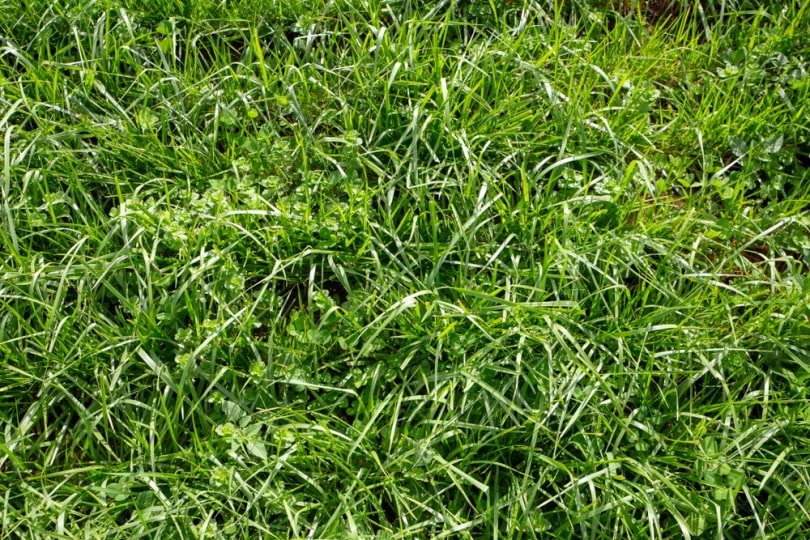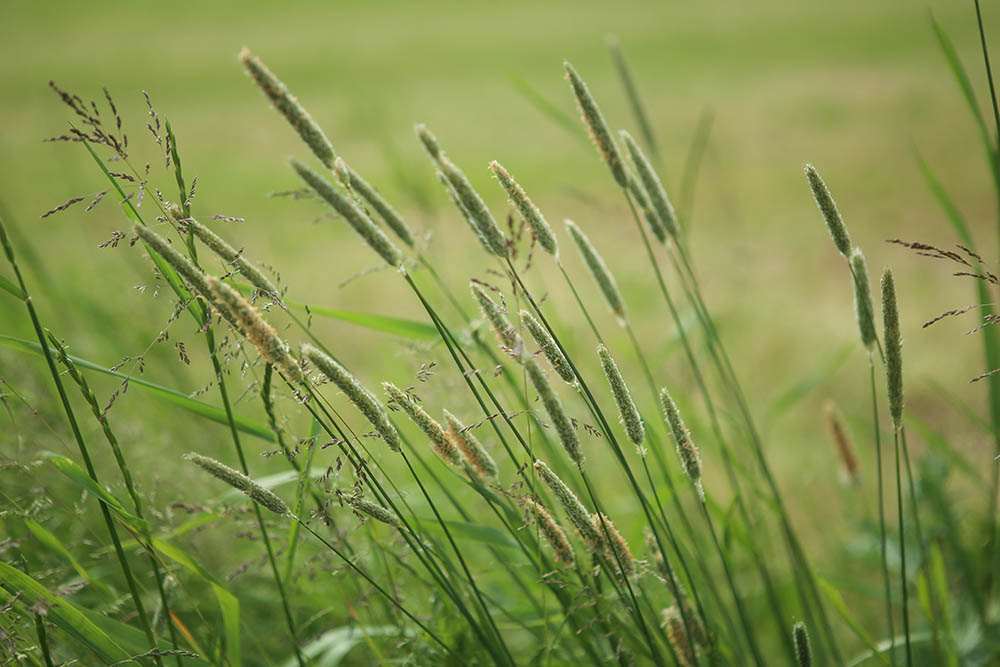5 Types Of Grass In Michigan (With Pictures)
-
Visnja Radosavljevic
- Last updated:

Almost everyone loves having a healthy, green lawn that will make their yard and house more beautiful. Getting that perfect lawn can be tricky if you’re not familiar with the species that work well for your area.
Below, we will list five types of grass best for Michigan lawns, including grasses that work well for cold climates.
The 5 Choices for Your Lawn In Michigan
1. Kentucky Bluegrass
| Maintenance needs: | High |
| Water requirements: | Weekly |
| Sun requirements: | Full sun/partial shade |
Kentucky Bluegrass is a cold-season, perennial grass. It grows most during spring and fall, although it’s slow-growing even then. This grass is quite hardy and has excellent self-repair qualities. Some varieties can be prone to stress damage, and most species don’t tolerate too much shade.
Kentucky Bluegrass has shallow roots that makes it less resistant to heat and drought. People love this species due to the unique blue/green emerald color. You should do regular maintenance from March to May.
2. Tall Fescue

| Maintenance needs: | Low |
| Water requirements: | Occasional watering |
| Sun requirements: | Full sun/partial shade |
Tall Fescue is another perennial, cold-season grass. It’s best to plant it during fall and spring, somewhere in full sun or partial shade. This grass species works perfectly for people who want something low-maintenance as it only needs occasional watering. Tall Fescue can grow in almost any soil and has a decent cold tolerance.
It can also bear through hot seasons, but it will require more water if the temperature gets high. The most common varieties of this grass type are the Black Beauty and the Dense Shade mix.
3. Perennial Ryegrass
| Maintenance needs: | High |
| Water requirements: | Weekly |
| Sun requirements: | Full sun/light shade |
Perennial Ryegrass is a cold-season grass that grows quite fast, making it stand out among other grass types. You can use it as lawn grass or as pasture grass. It has a lush appearance, and it rapidly germinates, making it great for golf courses and school areas.
This grass grows best in full sun, although it can tolerate light shade. It requires weekly watering and maintenance from March to May. This species is cold-tolerant, and it can be heat tolerant too depending on the variety.
4. Fine Fescues
| Maintenance needs: | Low |
| Water requirements: | Weekly |
| Sun requirements: | Full sun/partial shade |
Fine Fescue is another cold-season grass species, and some of the most popular varieties are the Creeping Redd, Sheep fescue, and Chewings fescue. They are excellent for colder regions, and they all have a stunning color. When planting this grass species you should plant it in full sun or partial shade to thrive.
This plant prefers clay soil, although it can grow in various soils. You shouldn’t fertilize frequently, but it’s still good practice on occasion.
5. Bentgrass

| Maintenance needs: | Low |
| Water requirements: | Daily |
| Sun requirements: | Partial shade |
Bentgrass is another perennial, cold-seasoned grass that thrives in cold, wet conditions. It tolerates low mowing, making it perfect for lawns and golf courses. This grass would die from too much sun, so it’s best to place it in partial shade. Bentgrass is typically low-maintenance, although it needs more maintenance during hot months.
Before you plant it, prepare the turf bed properly and add enough compost to promote germination. When the turf establishes, you need to add some fertilizer, and your Bentgrass will grow in no time.
Tips for Growing Grass in Michigan
Most grasses work well in Michigan if you plant them in early fall. Before planting the grass, ensure you have high-quality seeds, and that your soil matches the requirements of the grass you are planting. Before planting a certain grass type, always check for the climate, soil, and water requirements of the species.
Some grasses require more maintenance than others, so that’s another thing to have in mind. If you don’t have enough time you can dedicate to your lawn, it’s best to choose low-maintenance grasses such as Tall Fescue, Bentgrass, or Fine Fescue.
Conclusion
Grasses that work well in Michigan are commonly cold-seasoned, and everyone should be able to find a suitable species for their lawn. Before planting, compare all the options to find the grass type that will work for your needs. As long as you provide the grass with enough care and follow the planting guidelines, your lawn should look gorgeous!
Featured Image Credit: Sheryl Watson, Shutterstock
Contents
